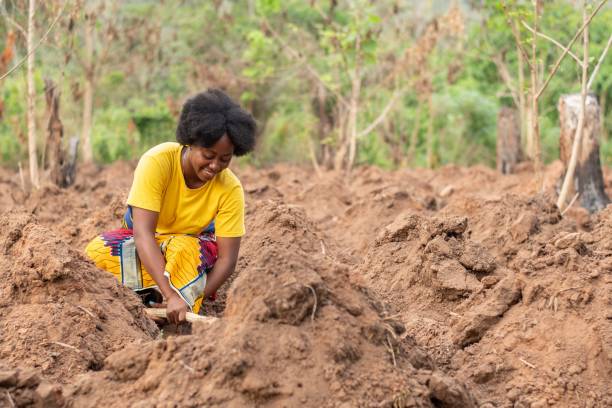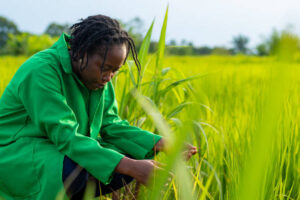
By Faustina Ofoha
The Nigeria’s agricultural sector, which is expected to contribute about 21.96% to the country’s gross domestic product this year, faces numerous challenges but also has opportunities for growth and innovation.
One of the challenges facing Nigeria’s agricultural sector is climate change. Changing temperatures, changing rainfall patterns, and extreme weather events are all taking an impact on the sector.

For instance, the devastating heat waves that affected Taraba yam farmers in recent times are a huge reminder of the sector’s sensitivity to climate change.Lack of robust data and structural support for female farmers pose a huge challenge to the agricultural sector.
Despite making up approximately 90% of the workforce in the sector, women remain overlooked and unsupported. This not only hinder their productivity but it also sustains the cycle of poverty and inequality.Despite these challenges, there are opportunities for growth and innovation in Nigeria’s agricultural sector.

For instance,the increase in the prices of cocoa beans have benefited cocoa farmers in Oyo State enabling them to improve their living standards and expand their farming operations.
Also, the efforts of the Nigerian government to promote sustainable agricultural practices and reduce environmental degradation present opportunities for innovation and investment.
The development of climate-resilient crop varieties, adoption of precision farming methods and the promotion of agroforestry practices are just a few examples of the many opportunities available.

To thrive in 2025, Nigeria’s agricultural sector must adopt a multifaceted approach.This can be done by investing in climate-resilient agricultural practices and technologies, providing sufficient data and structural support for female farmers, promoting sustainable agricultural practices and encouraging innovation and investment into the sector.
Through proactive and collaborative efforts, Nigeria can tap into the full potential of its agricultural sector, encouraging a prosperous future for farmers, promoting national food security, and driving sustainable economic growth.






